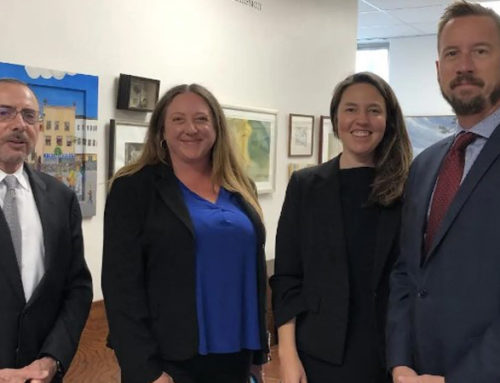LOS ANGELES, CALIF.–A judge awarded nearly $5 million to the attorneys representing plaintiffs in a lending discrimination class action lawsuit against Wells Fargo Bank (Opal Jones, et. al v. Wells Fargo Bank, N.A., Wells Fargo Home Mortgage, et. al Los Angeles Superior Court, Case No. BC337821, March 23, 2011). Last year, a jury awarded plaintiffs $3.5 million. With attorneys’ fees, costs and interest, the total judgment against Wells Fargo Bank is now $9.8 million.
Attorneys A. Barry Cappello and Leila J. Noël, partners in the Santa Barbara law firm of Cappello & Noël, LLP, brought the class action lawsuit on behalf of minority borrowers, alleging that Wells Fargo consistently and knowingly discriminated against borrowers in minority neighborhoods resulting in these borrowers paying more for their loans than borrowers in non-minority areas of Los Angeles County. The jury found that the race, color, ancestry and/or national origin of the plaintiffs were a “motivating reason” for Wells Fargo’s conduct.
“The Justice Department announced today that Wells Fargo will pay $175 million to settle a lending discrimination lawsuit against Wells Fargo,” says Cappello. “The government recognized what was apparent for years in the Los Angeles area. It had only to look at the Jones case to see the pattern of deliberate discrimination.”
The suit was filed under California’s Unruh Civil Rights Act, which bars discrimination by businesses. Judge Anthony Mohr, who presided over the trial, noted that, as far as anyone knows, the case was the first Unruh Act class action to go through a full trial to verdict.
In 2002, Wells Fargo introduced a computer program called “Loan Economics,” which gave loan officers the ability to offer loan applicants lower pricing through reduced interest rates and points. The class action alleged that loan officers in predominately non-minority bank branches could use the program to price loans, while loan officers in predominantly minority bank branches could not. The evidence presented at trial was that Wells Fargo management prevented the branches in minority neighborhoods from using the program.
Under the plan of distribution preliminarily approved by the Court, each class member is expected to receive about $400. Named class plaintiff Opal Jones is satisfied that Wells Fargo has been called out for its discriminatory practices. “I trusted Wells Fargo to give me and others like me the best possible loan,” says Jones. “But borrowers who tried to obtain loans at branches in minority communities were not offered the bank’s best loans. Instead, they paid higher loan costs than borrowers in non-minority neighborhoods. That’s unfair. I’m happy that we had our day in court and, hopefully, Wells Fargo will learn from this.”
Plaintiffs’ attorneys litigated the case for over six years, and the trial lasted three months. They asked for their fees incurred in the case, approximately $12 million, as well as a small multiplier due to the risk involved in representing the borrower class. Wells Fargo suggested that $2.3 million in attorneys’ fees would be an appropriate award. The judge disagreed with both sides.






